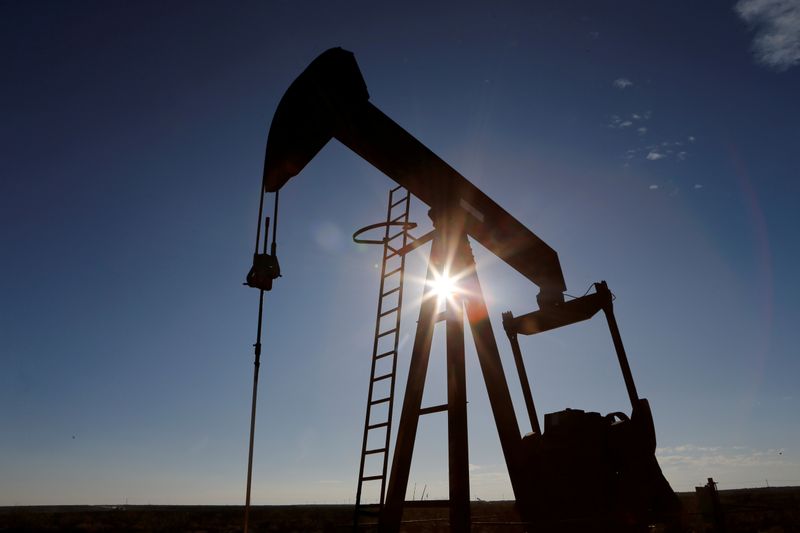By Bozorgmehr Sharafedin
LONDON (Reuters) - Oil rose on Monday, supported by an improvement in Chinese factory data and rising energy demand as countries eased coronavirus-related lockdowns, but traders remained cautious due to U.S.-China tensions and uncertainty over a U.S. stimulus package.
Brent crude (LCOc1) rose 54 cents, or 1.2%, to $44.94 a barrel by 0852 GMT, while U.S. West Texas Intermediate (WTI) crude (CLc1) was up 69 cents, or 1.7%, to $41.91 a barrel.
Saudi Arabian Aramco (SE:2222) Chief Executive Amin Nasser said on Sunday that he sees oil demand rebounding in Asia as economies gradually open up.
China's factory deflation eased in July, driven by a rise in global oil prices and as industrial activity climbed back towards pre-coronavirus levels, adding to signs of recovery in the world's second-largest economy.
"With oil demand still slowly grinding higher, and oil supply in check due to the OPEC+ production cut deal and prices too low to incentivize strong production growth in the United States, the oil market remains undersupplied," UBS analyst Giovanni Staunovo said.
Iraq said on Friday it would cut its oil output by a further 400,000 barrels per day in August and September to compensate for its overproduction in the past three months. The move would help it comply with its share of cuts by the Organization of the Petroleum Exporting Countries and allies, known as OPEC+.
"This would send out a strong signal to the oil market on various levels. That said, this would also require the international companies operating in Iraq to join in with the cuts," Commerzbank (DE:CBKG) analyst Eugen Weinberg said.
However, uncertainty over U.S. fiscal stimulus put some pressure on prices. President Trump signed a series of executive orders to extend unemployment benefits after talks with Congress broke down.
U.S. House Speaker Nancy Pelosi and Treasury Secretary Steven Mnuchin said on Sunday they were open to restarting the talks.
"The longer this drags on the worse it is for the demand scenario," said Michael McCarthy, market strategist at CMC Markets and Stockbroking.
Adding to the uncertainty were ongoing tensions between Washington and Beijing. Trump signed two executive orders banning WeChat and TikTok in 45 days' time while announcing sanctions on 11 Chinese and Hong Kong officials.

Markets will now keep an on a China-U.S. meeting on trade talks scheduled for this weekend.